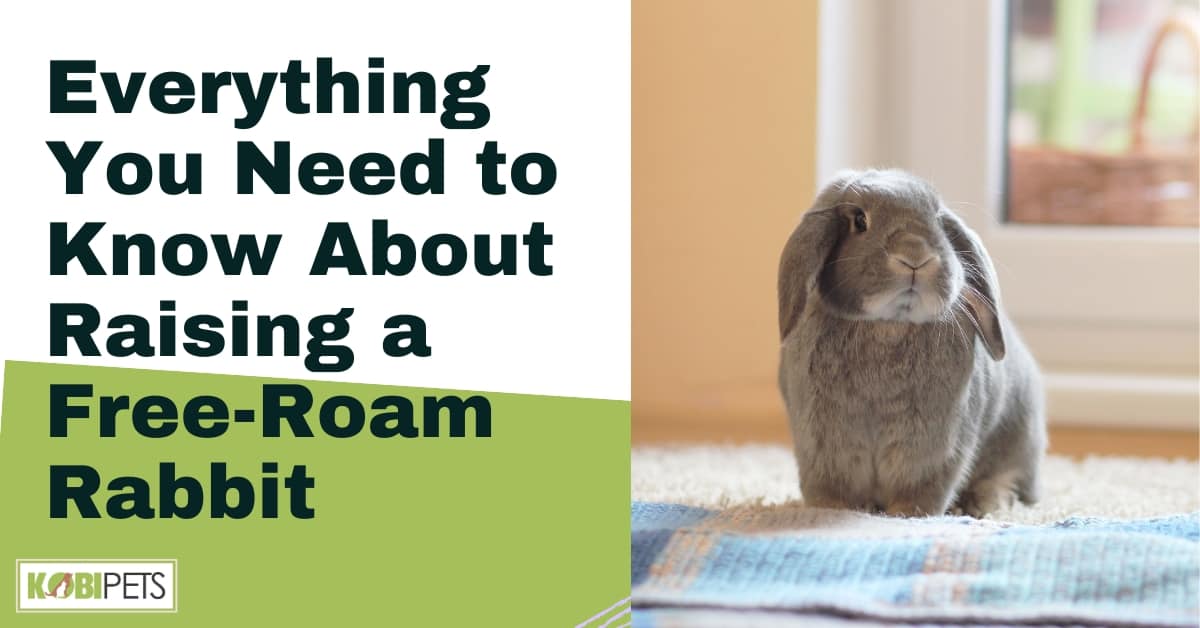
Raising a free-roam rabbit can be an incredibly rewarding experience for both the owner and their furry companion. Free-roam rabbits are given greater freedom as opposed to regular pet bunnies, as they have much more space to move around in.
Free-roam rabbits lead happier and healthier lives with improved physical and mental stimulation. Essential considerations for a safe and comfortable environment include providing plenty of space, securing hazardous areas, and ensuring a balanced diet. Regular health checks and proper socialization with other pets are also crucial.
With this type of environment managed correctly, a free-roam rabbit can live a healthy and fulfilling life under the care of their owner.
What is a Free-Roam Rabbit?
Free-Roam Rabbit is a revolutionary pet concept that gives rabbits the opportunity to live in a stimulating, enriching environment without being confined.
Providing freedom and choice as opposed to traditional housing confinements, it aims to improve the quality of life for these charming critters while keeping them safe from harm.
It is designed by animal experts, who have considered the specific physiological and behavioral needs of different rabbit breeds when creating its free-roam habitats.
This type of habitat looks and functions much like an indoor playground with ramps, tunnels, and play areas which are stocked daily with fresh vegetables, herbs, and hay to ensure optimal nutrition.
Through this high-quality enriched living structure, owners can enjoy the presence of their furry friends while they stay happy and healthy in their home dynamic.

Benefits of a Free-Roam Lifestyle for Rabbits
Rabbits are social animals and typically thrive when given plenty of space to explore. A free-roam lifestyle is an ideal environment for rabbits, as it allows them to exercise and fulfill their natural behaviors in a safe, healthy manner.
It also can help reduce stress-related behaviors such as fur biting. With a free-roam lifestyle, rabbits may also benefit from having foraging opportunities, or being able to interact with other rabbits or animal companions.
Allowing your rabbit to free-roam provides numerous benefits for their physical and mental well-being.
- Exercise and Physical Stimulation: Free-roam rabbits are able to move around freely and exercise their muscles, leading to improved physical health and mobility. This also helps prevent obesity, which is a common issue for indoor rabbits.
- Mental Stimulation: Rabbits are active and curious animals and need plenty of mental stimulation to stay happy and healthy. A free-roam environment provides them with a constantly changing environment to explore and interact with, keeping their minds engaged and reducing boredom.
- Natural Behaviors: In a free-roam environment, rabbits can engage in natural behaviors such as hopping, jumping, and digging, which are important for their physical and mental well-being.
- Improved Mood and Quality of Life: A free-roam lifestyle leads to happier and more relaxed rabbits, reducing stress and improving their overall quality of life.
- Bonding Opportunities: Free-roaming rabbits are more likely to interact and bond with their owners, leading to a stronger human-animal connection.
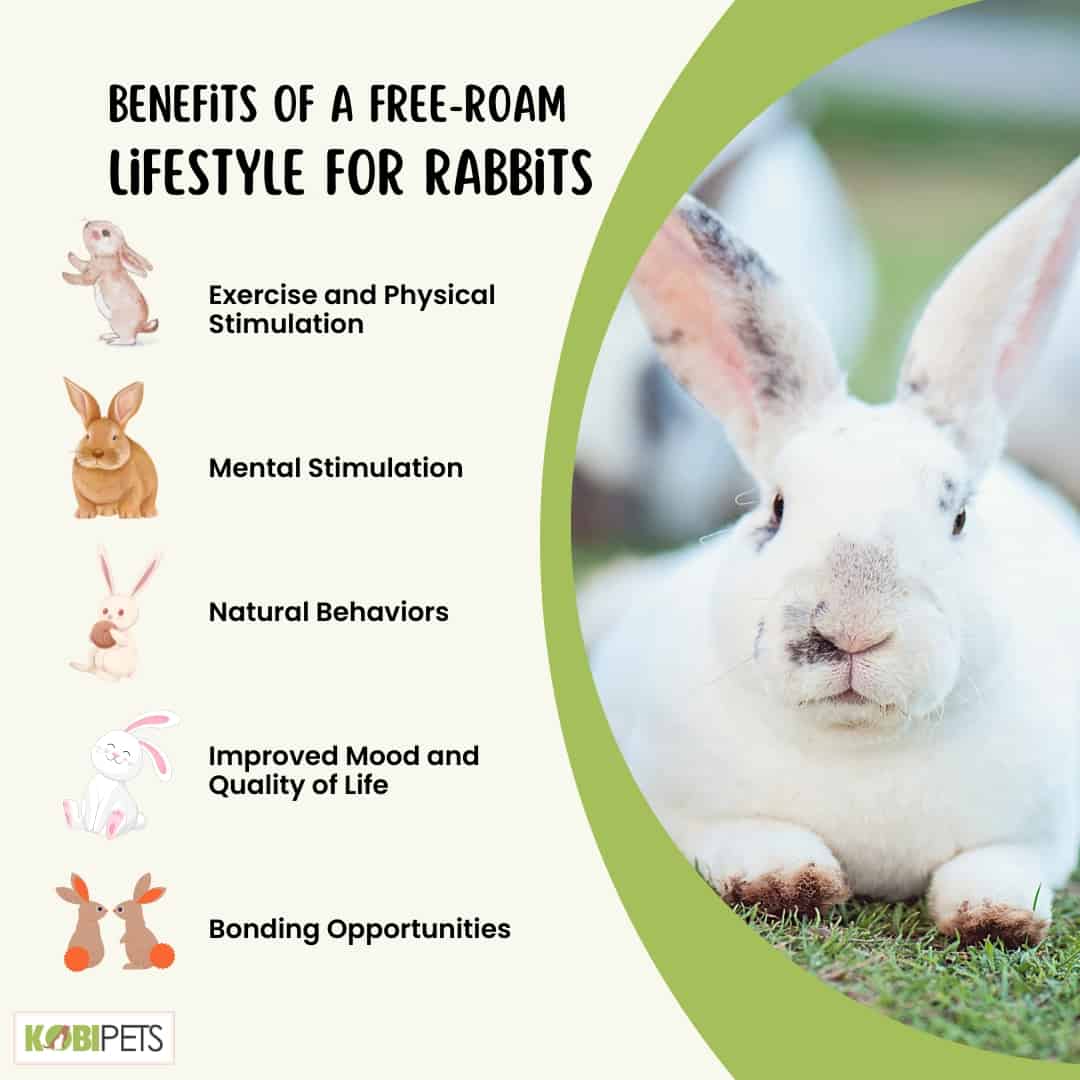
Benefits of a Free-Roam Lifestyle for Rabbits
Essential Considerations for a Free-Roam Environment
Although free-roam housing is the ideal choice for rabbits, it is important to consider the specific needs of your rabbit and its environment.
Firstly, make sure that the size of your bunny’s habitat meets its particular needs. The area should be large enough so they can move freely, explore, and play without feeling cramped.
Additionally, it is important to provide a secure environment for your rabbit, with plenty of hiding places and supported walls to guard against any potential predators.
It is also important to create an enriching space that encourages the physical, mental, and social well-being of your bunny.
Toys, organic materials like hay or straw, perches for climbing, tunnels for exploration, and even a companion rabbit are all elements that can make up an enriching environment.
Finally, rabbits need to be able to access food and water on a regular basis. This means stocking their habitat with hay, fresh vegetables, pellets, or treats for snacking, as well as providing them with clean water sources.
With proper care, a free-roam lifestyle can be a safe and rewarding experience for rabbits and their owners alike.
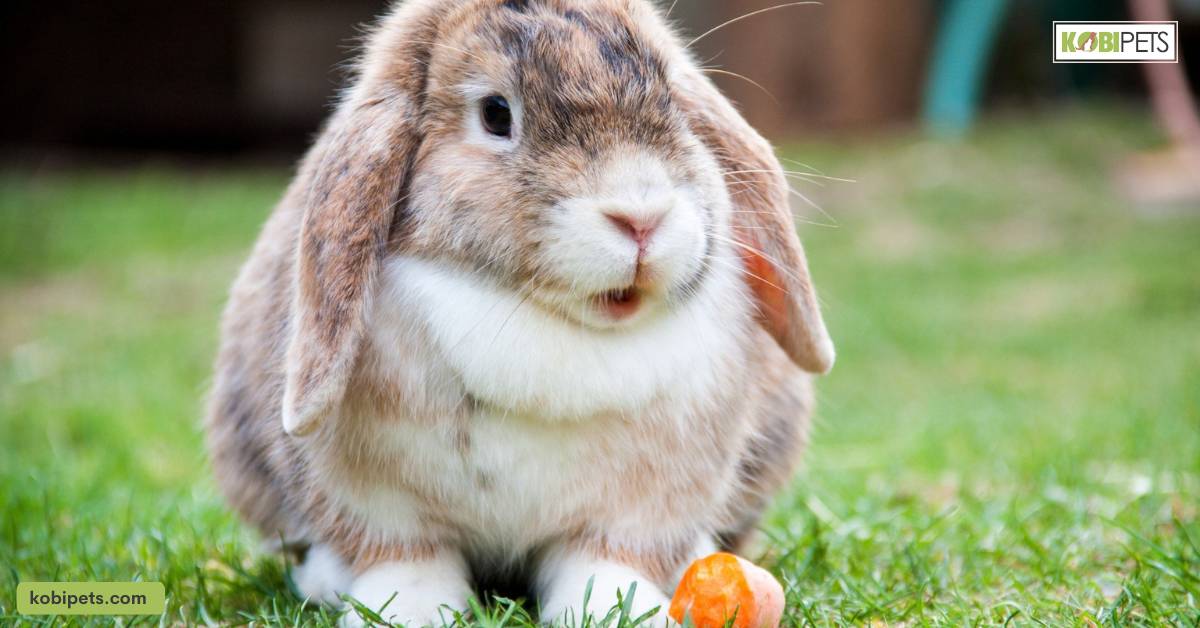
Providing a Safe and Comfortable Living Space
Creating a safe and comfortable living space for free-roam rabbits is key to providing them with an enriched lifestyle.
Firstly, always make sure that your rabbit’s habitat is secured from potential predators. This includes keeping the space enclosed and making it inaccessible to cats or other animals.
It also means ensuring that there are no gaps in the walls or flooring that a predator could use to gain access.
Ensure the environment is free from sharp objects and other hazards that can injure your rabbit. Check for any loose wires or cables, as well as poisonous plants or products that may be in the vicinity of your bunny’s living space.
Additionally, make sure to provide plenty of hiding places and secure perches so your bunny can take refuge when they feel threatened. Finally, consider how the temperature of the environment may affect your rabbit.
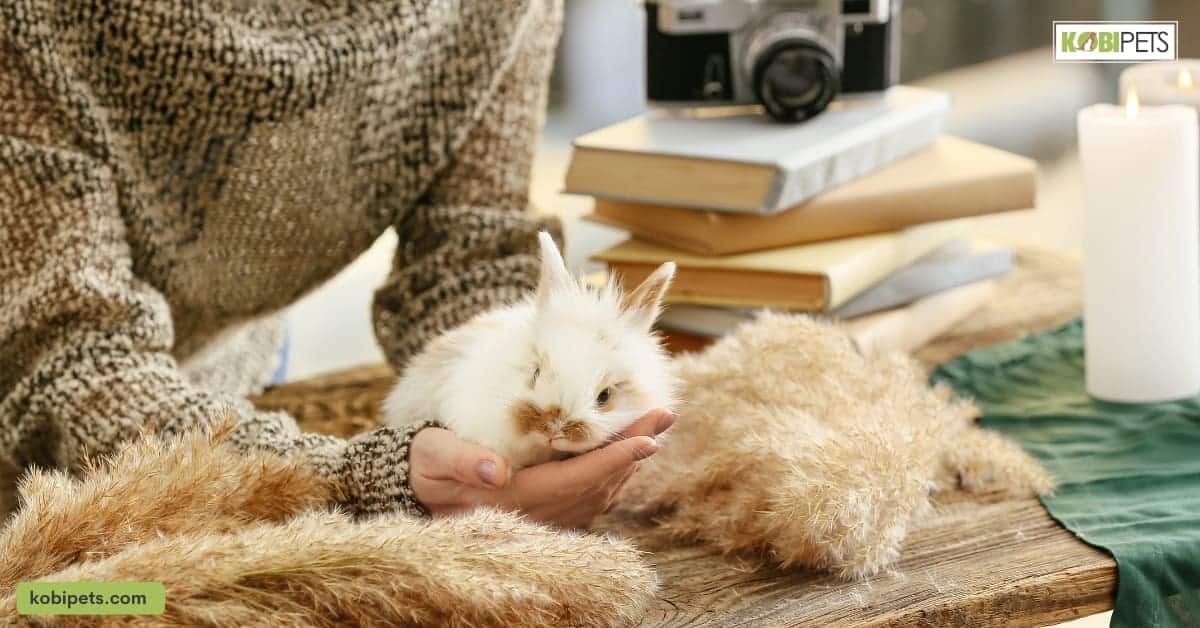
Feeding and Hydration for Free-Roam Rabbits
Providing your free-roam rabbit with a balanced diet is essential for their overall health. Offer them fresh hay, vegetables, and herbs daily to meet their nutritional needs.
Additionally, provide your bunny with quality pellets or treats to snack on throughout the day.
It is also important to ensure that your rabbit has access to clean water at all times. Provide multiple water sources, such as a bottle or bowl, and make sure to refill them regularly.
Finally, it is essential to keep an eye on your bunny’s food and water intake. Monitor their diet for any changes in eating habits or potential health issues such as diarrhea or weight loss.
By following these simple feeding and hydration guidelines, you can help ensure that your free-roam rabbit stays healthy and happy.
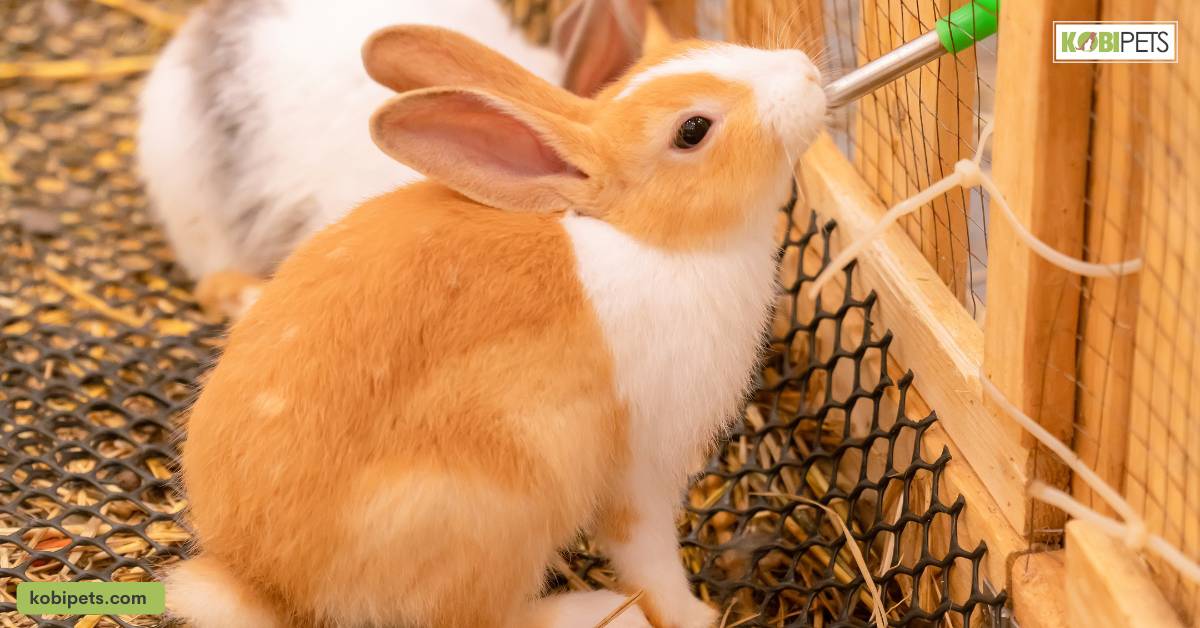
Regular Health Checks and Basic Care
Rabbits need regular examinations to ensure their overall health and well-being. While it is best to have a veterinarian check for any potential health problems, you can also do basic care at home.
Check your rabbit’s body for any abrasions or other signs of injury or disease. Additionally, keep an eye on their fur and nails for any changes that may indicate potential health issues.
Finally, be sure to clean out their living space regularly and provide fresh hay or straw as needed.
Regular health checks and basic care can help ensure that your rabbit is healthy, safe, and happy in their free-roam environment.
Socialization and Interaction with Other Pets
Socialization and interaction with other pets can provide a stimulating environment for free-roam rabbits.
Rabbits are social animals, so they may benefit from having a companion rabbit or other animal to interact with. This can help promote healthy behavior and reduce stress.
It is important to ensure that any potential companions are compatible, as rabbits may become aggressive towards one another if not properly introduced.
You can also encourage your rabbit to interact with other pets through activities such as playtime or supervised cuddles. Additionally, talking to them in a gentle and friendly manner can help build a strong bond between you and your bunny.
Socialization and interaction with other pets can be a great way to enrich the lives of free-roam rabbits.
Monitoring your rabbit’s activity and behavior is an important part of providing them with a safe free-roam environment. By keeping an eye on their movements, you can identify any potential health or safety risks in the home.
Monitor their behavior for any changes that may indicate illness or injury, as well as any stress-related behaviors such as fur biting. Additionally, observe your rabbit’s interaction with other animals in the home to ensure that all interactions are safe and non-aggressive.
By monitoring your rabbit’s activity and behavior, you can ensure a healthy and enriching free-roam lifestyle for them.
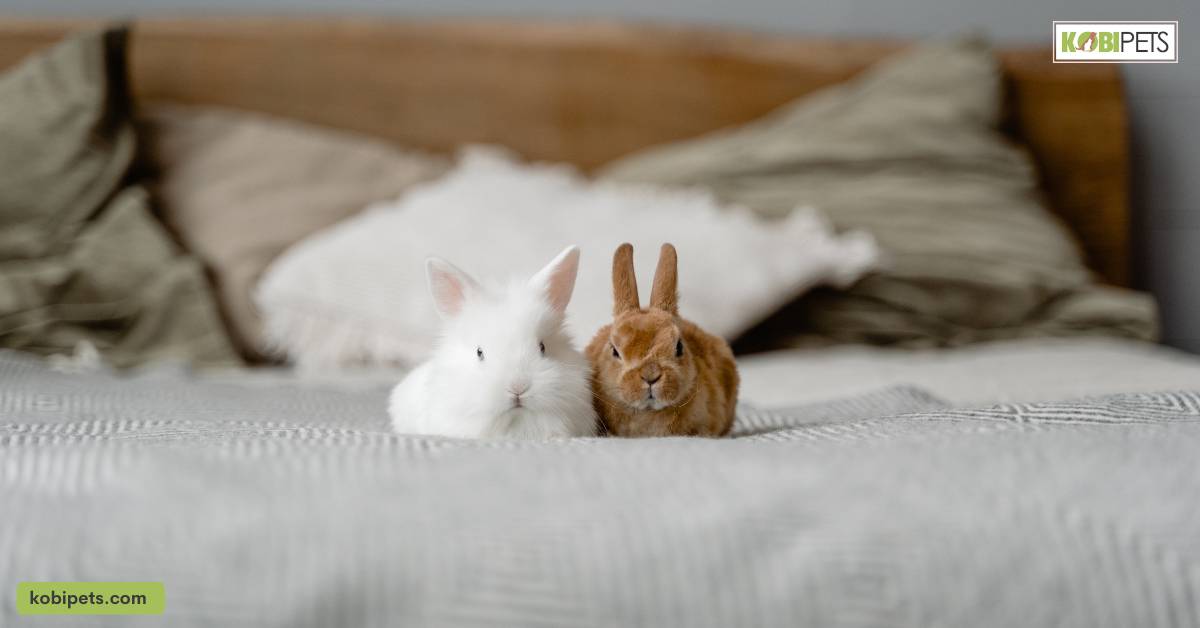
Common Issues and Solutions in Raising a Free-Roam Rabbit
Are you considering adding a free-roam rabbit to your household? If so, there are important things to consider and various common issues that may arise. Fortunately, there is no need to worry as these issues all come with straightforward solutions.
Raising a free-roam rabbit comes with its own set of challenges and common issues that pet owners may face. However, with the right solutions, these problems can easily be overcome.
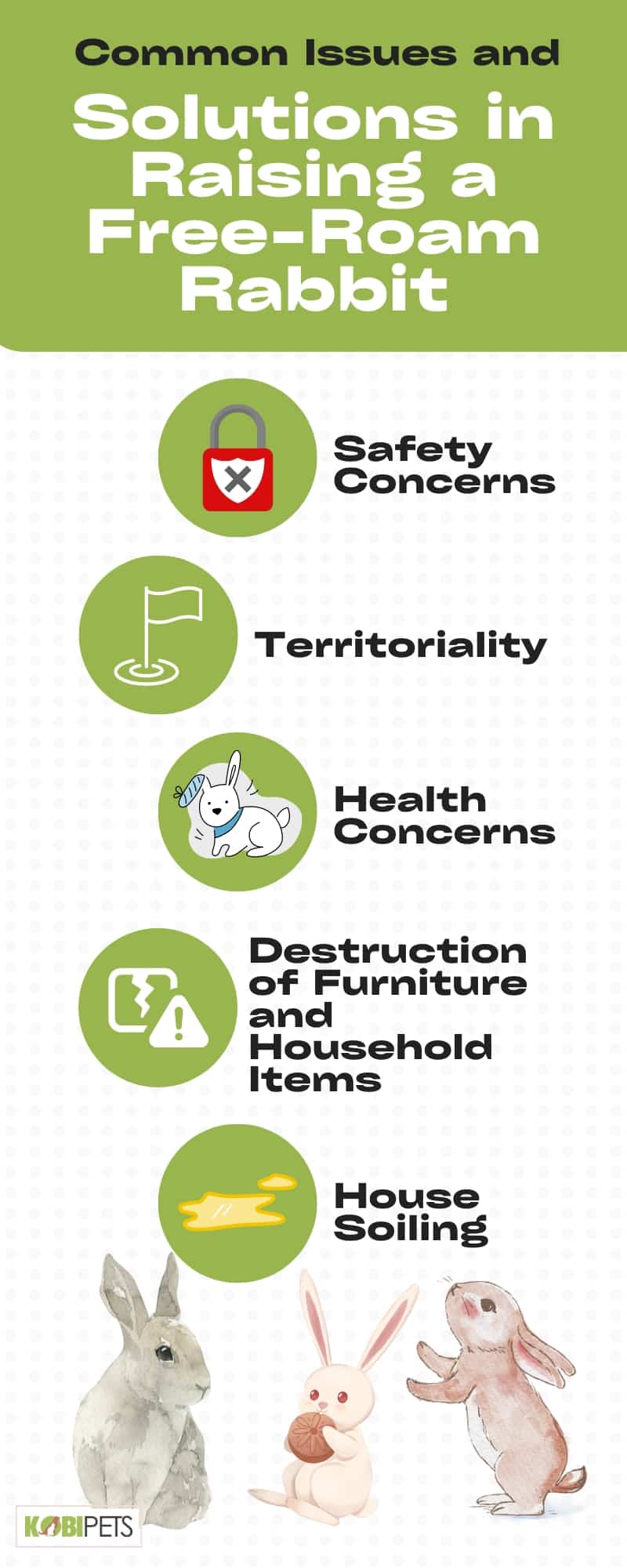
Common Issues and Solutions in Raising a Free-Roam Rabbit
Safety Concerns
One of the biggest concerns with free-roaming rabbits is their safety. Rabbits can be curious and adventurous, which can lead them into dangerous situations.
It is important to ensure that your home and garden are safe for your rabbit, with any hazardous areas, such as electrical wires or toxic plants, secured or removed.
Territoriality
Free-roaming rabbits may become territorial and aggressive towards other pets in the household. To prevent this, it is important to introduce new pets slowly and carefully and to provide plenty of space and resources for all animals to avoid competition.
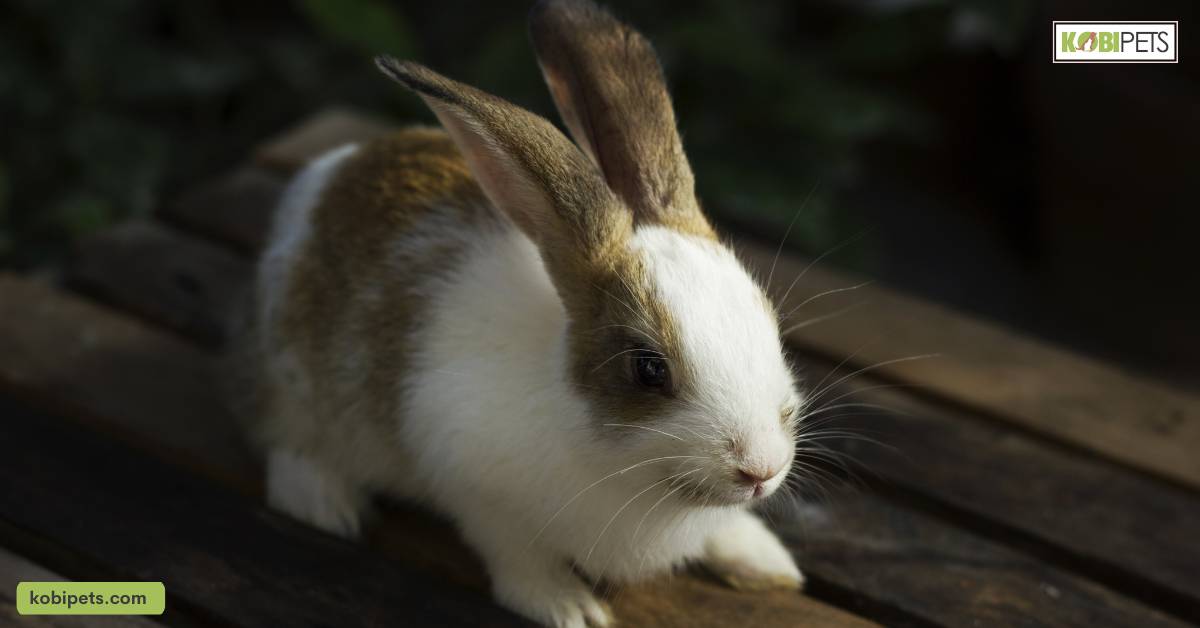
Destruction of Furniture and Household Items
Free-roaming rabbits may chew on furniture or household items, causing damage. To prevent this, it is recommended to provide your rabbit with plenty of toys and chew items to redirect their chewing behavior.
House Soiling
Rabbits may soil areas of your home if they are not litter trained. To prevent this, it is important to litter train your rabbit and provide them with a designated toilet area.
Health Concerns
Free-roaming rabbits are more likely to come into contact with parasites or other health problems. It is important to keep a close eye on your rabbit’s health and to schedule regular check-ups with a veterinarian.
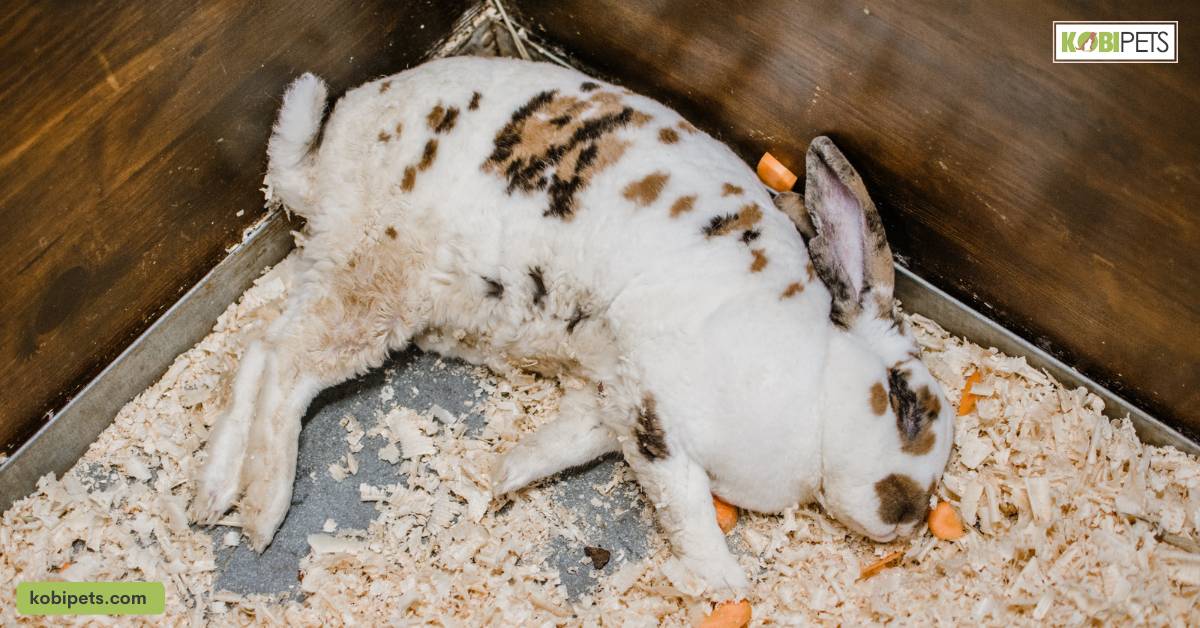
In conclusion
Taking care of a free-roam rabbit requires patience and dedication, but the payoff is a happy, healthy rabbit that can provide companionship for years to come.
While some rabbits are content in cages, providing them with the freedom to roam their space offers enrichment and stimulation that can help keep them healthier and more engaged.
Whether you’re just starting out with your free-roam rabbit or have been caring for one for years, it’s important to stay informed on all the information available from reputable sources so you can make sure your pet is living its best life.






